Search Results
Showing results 121 to 140 of 350
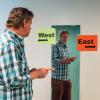
Mirror Reversal
Source Institutions
Challenge popular misconceptions, learners explore how a mirror actually reflects an image in this activity.
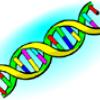
Make Your Own DNA
Source Institutions
Learners match puzzle pieces to outlines of a DNA strand. The puzzle pieces represent the four chemicals making up DNA base pairs: adenine, thymine, guanine, and cytosine.
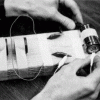
Motor Effect
Source Institutions
In this activity about electricity and magnetism, learners examine what happens when a magnet exerts a force on a current-carrying wire.
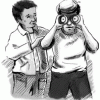
Seeing Is Believing
Source Institutions
This activity is designed to accompany the PBS documentary about African-American chemist "Percy Julian: Forgotten Genius." Learners look through two cups with small holes in them to simulate what it'
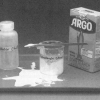
Starch Slime
Source Institutions
Learners mix liquid water with solid cornstarch. They investigate the slime produced, which has properties of both a solid and a liquid.
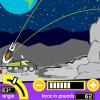
Planetary Rescue Squad
Source Institutions
This is an online Flash game where learners can experiment with ballistics and how to compensate for the varying levels of gravity found on the planets of our Solar System.
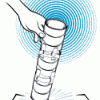
CANdemonium: Make a Drum Out of Recycled Cans
Source Institutions
With three cans and some tape, make a drum that you bonk down on any surface to produce a variety of sounds. This activity also teaches you about pitch, vibration, and frequency.
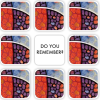
Audio Memory
Source Institutions
In this interactive game, learners will test their memory of animal and insect sounds. Flip over cards, listen to the sound, and try to find the ones that match.
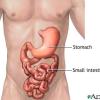
Ziploc Digestion Simulator
Source Institutions
In this biology activity, learners recreate the process of digestion in a zip lock bag. A bit of soda pop added to some crumbled crackers approximates how acids in the stomach dissolve food.

Aerogel
Source Institutions
This activity/demo introduces learners to aerogel, a glass nanofoam. Learners discover how aerogel is made and how well it insulates as well as learn about aerogel's other unique properties.
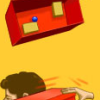
Exploring With Sound
Source Institutions
In this activity, learners use sound to figure out, or infer, the position of objects. Learners create a maze inside a shoebox with blocks of wood.
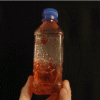
What is a “Convection Cell”?
Source Institutions
In this demonstration, learners can observe a number of small convection cells generated from a mixture of aluminum powder and silicon oil on a hot plate.
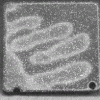
Changing Colors
Source Institutions
Learners experiment with a commercially available liquid-crystal coaster. They warm the material with their hands for varying lengths of time and observe the changing colors that result.
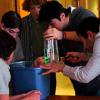
Total Internal Reflection
Source Institutions
In this activity, learners use a laser pointer, empty soda bottle, rubber plug and water to demonstrate total internal reflection.
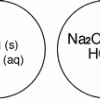
Gas Producing Micro-Reaction
Source Institutions
In this chemistry activity, learners use common chemicals and metals to examine reactions that produce gaseous substances.
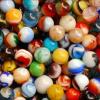
Marble Challenge
Source Institutions
In this physics activity (page 6 of the PDF), learners will try to keep a marble in a bottomless cup without touching the marble inside.
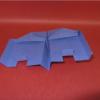
Glider
Source Institutions
In this activity, learners construct a paper glider to experiment with aerodynamic forces.
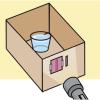
Bending Light
Source Institutions
In this optics activity, learners make a lens and explore how the eye manipulates the light that enters it.
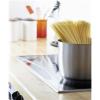
Dancing Spaghetti
Source Institutions
In this chemistry activity, learners use spaghetti to explore density and chemical reactions.
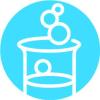
Production of Oxygen
Source Institutions
In this chemistry activity, learners use yeast and hydrogen peroxide to generate a gas (oxygen) and test some of its properties.
